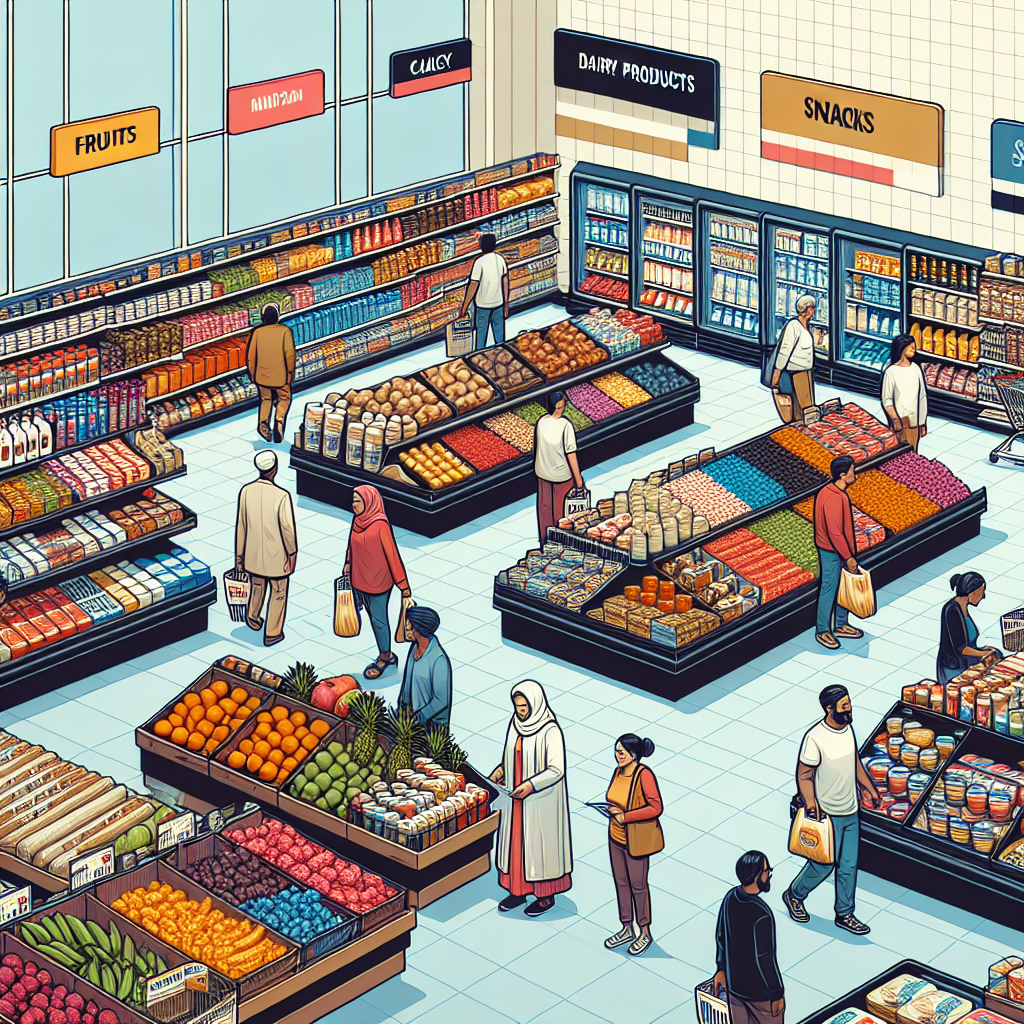The Role of Artificial Intelligence in Grocery Retailing
The grocery retail industry has seen significant advancements in recent years, with the integration of artificial intelligence (AI) playing a crucial role in enhancing operational efficiency, customer experience, and overall business success. In this report, we will explore the various ways in which AI is transforming the grocery retail landscape and the key trends shaping the future of the industry.
Current State of the Global Grocery Retail Industry
According to a recent report by CulinaryCoverage.com, the global grocery retail industry is projected to reach a value of $12 trillion by 2025, with a compounded annual growth rate (CAGR) of 5%. This growth is driven by increasing consumer demand for convenient shopping experiences, personalized products, and seamless omnichannel integration.
In terms of market share, the top players in the industry include Walmart, Amazon, Tesco, and Kroger, who collectively account for over 30% of the global market. These retailers have been at the forefront of adopting AI technologies to streamline operations, optimize inventory management, and improve customer engagement.
Impact of Artificial Intelligence in Grocery Retailing
AI technology is revolutionizing the way grocery retailers operate, enabling them to make data-driven decisions, automate routine tasks, and deliver personalized experiences to customers. Some of the key areas where AI is making a significant impact include:
Inventory Management
AI-powered algorithms help retailers forecast demand, optimize stocking levels, and reduce wastage by analyzing historical sales data, seasonal trends, and external factors such as weather conditions. By leveraging AI, retailers can ensure that shelves are always stocked with the right products at the right time, minimizing out-of-stock situations and maximizing sales.
Personalized Marketing
AI enables retailers to analyze customer data, purchase history, and online behavior to deliver personalized recommendations, promotions, and offers. By segmenting customers based on their preferences and shopping habits, retailers can target specific audiences with relevant content, increasing engagement and loyalty.
Checkout Optimization
AI-powered checkout systems, such as cashier-less stores and self-service kiosks, streamline the payment process, reduce waiting times, and enhance the overall shopping experience. These systems use computer vision, sensor fusion, and machine learning algorithms to automatically identify products, calculate prices, and process payments, eliminating the need for manual intervention.
Future Trends in AI-driven Grocery Retailing
Looking ahead, the future of grocery retailing is poised to be even more AI-driven, with the following trends shaping the industry:
Voice Commerce
Voice-activated shopping assistants, such as Amazon’s Alexa and Google Assistant, are gaining popularity among consumers, enabling them to place orders, make payments, and track deliveries using natural language commands. Retailers are integrating voice commerce capabilities into their online platforms to provide a seamless shopping experience and drive customer engagement.
Robotic Automation
Robotic automation is revolutionizing the way retailers manage inventory, fulfill orders, and optimize store operations. Automated robots can navigate aisles, pick products, and restock shelves with precision and efficiency, reducing labor costs and improving operational efficiency. Retailers are investing in robotic automation solutions to streamline their operations and enhance the overall shopping experience.
Personalized Pricing
AI-powered dynamic pricing algorithms analyze market dynamics, competitor pricing, and customer demand to adjust prices in real-time based on supply and demand. By offering personalized pricing strategies, retailers can maximize profits, optimize inventory turnover, and attract price-sensitive customers. Personalized pricing is becoming increasingly popular among retailers looking to differentiate themselves in a competitive market.
In conclusion, AI technology is playing a pivotal role in shaping the future of the grocery retail industry, enabling retailers to drive operational efficiency, enhance customer experience, and stay ahead of the competition. By embracing AI-driven solutions and staying abreast of the latest trends, grocery retailers can position themselves for long-term success in a rapidly evolving market landscape.



